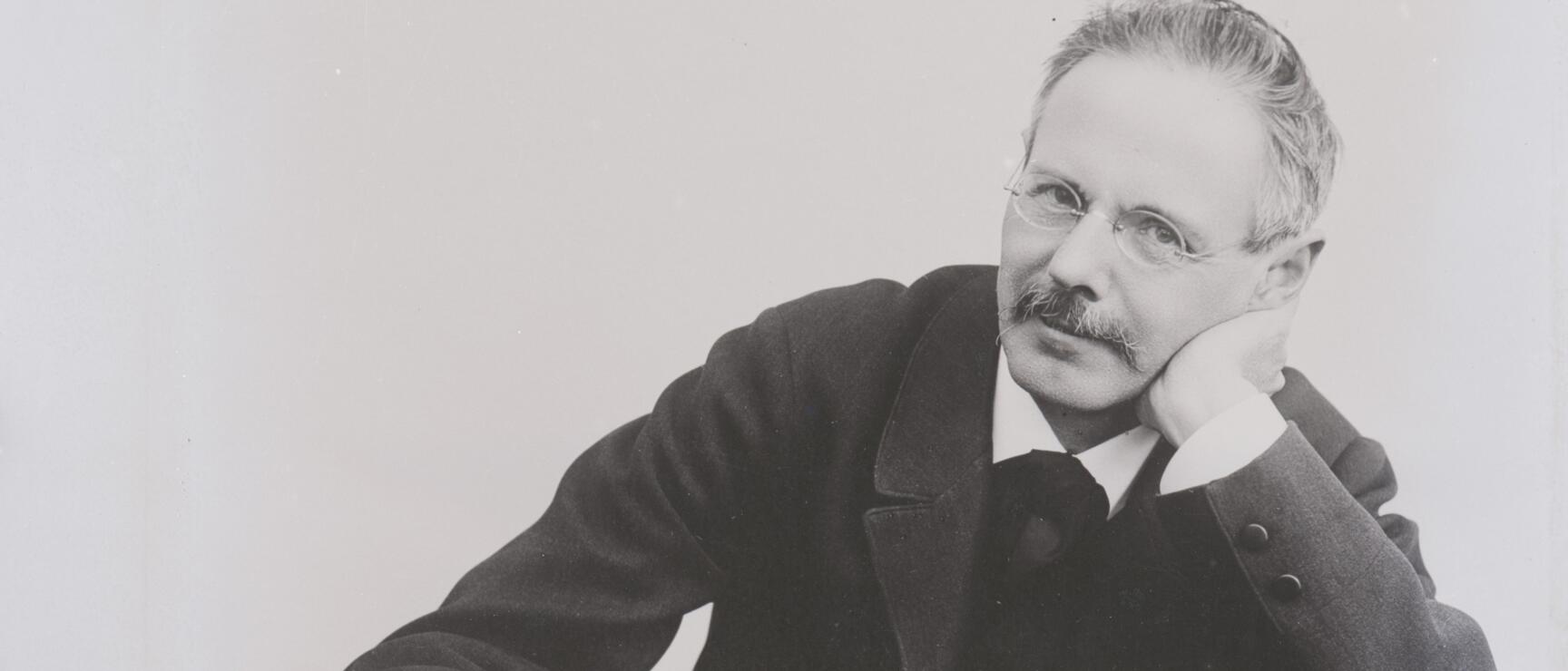
Peter Rosegger
Literature between snow and ice
Through the eyes of a child, Peter Rosegger describes the beauty, but also the harsh and inhospitable aspects of winter.
Raised on a mountain farm in Styria — which the poet would later call his “Forest Homeland” (Waldheimat) — he became a successful German-language author at the turn of the century.
His three-volume collection of stories, "When I Was a Forest Farm Boy" (Als ich noch ein Waldbauernbub war), published between 1900 and 1902, became a true bestseller.
Peter Rosegger was born in 1843 in Alpl and was the oldest of seven children. The son of an illiterate father, he learned much from his mother, who could read. At 17, he began an apprenticeship as a tailor, as he was too weak for farm work.
While walking from farm to farm, he became familiar with local customs and people. He soon began writing his first texts, changed the spelling of his name from “Roßegger” to “Rosegger,” and gained recognition as an author. He married twice, had five children, and went on reading tours throughout Central Europe. Rosegger died in 1918 in Krieglach, where he is also buried.
"No person on Earth has brought me as much joy as nature, with its colors, sounds, scents, its peace and its moods."
Meet Peter Rosegger
Author, poet and journalist
In the age of industrialisation, Rosegger fulfilled the yearning for authentic village tales that offered a comforting contrast to the hectic pace of urban life. The genre of the “Heimatroman” (regional or homeland novel) was born.
Yet it would be mistaken to regard Rosegger merely as a literary voice of an idyllic rural world. He also wrote about hardship, poverty, and the stark inequalities that prevailed between wealthy landowners and those in need.
„When I Was a Forest Farm Boy“
The silent, magical world of winter, combined with the hardships of mountain farming life, is vividly captured in a Christmas story from the now-famous collection "When I Was a Forest Farm Boy."
In "When I Went to Fetch Christmas Joy," Rosegger describes the endlessly long journey from his family farm in Alpl to the distant Mürz Valley. From there, he had to fetch ingredients for the Christmas meal for the large family. Hours of walking over slippery, steep slopes and through deep, snow-covered forests were part of the exhausting daily life in this remote world.
„On Christmas Night"
In his story "On Christmas Night", Rosegger describes the nighttime journey to Midnight Mass.
Anyone who walks today from the Kluppeneggerhof — Rosegger’s original, well-preserved birthplace — to St. Kathrein am Hauenstein in winter can begin to grasp the effort once required to navigate the steep, snow-covered terrain.
Along the walking route from his birthplace in Alpl to his favourite church, the Parish Church of St. Kathrein am Hauenstein, plaques with quotes and sayings recall the works of the famous poet of home and homeland.